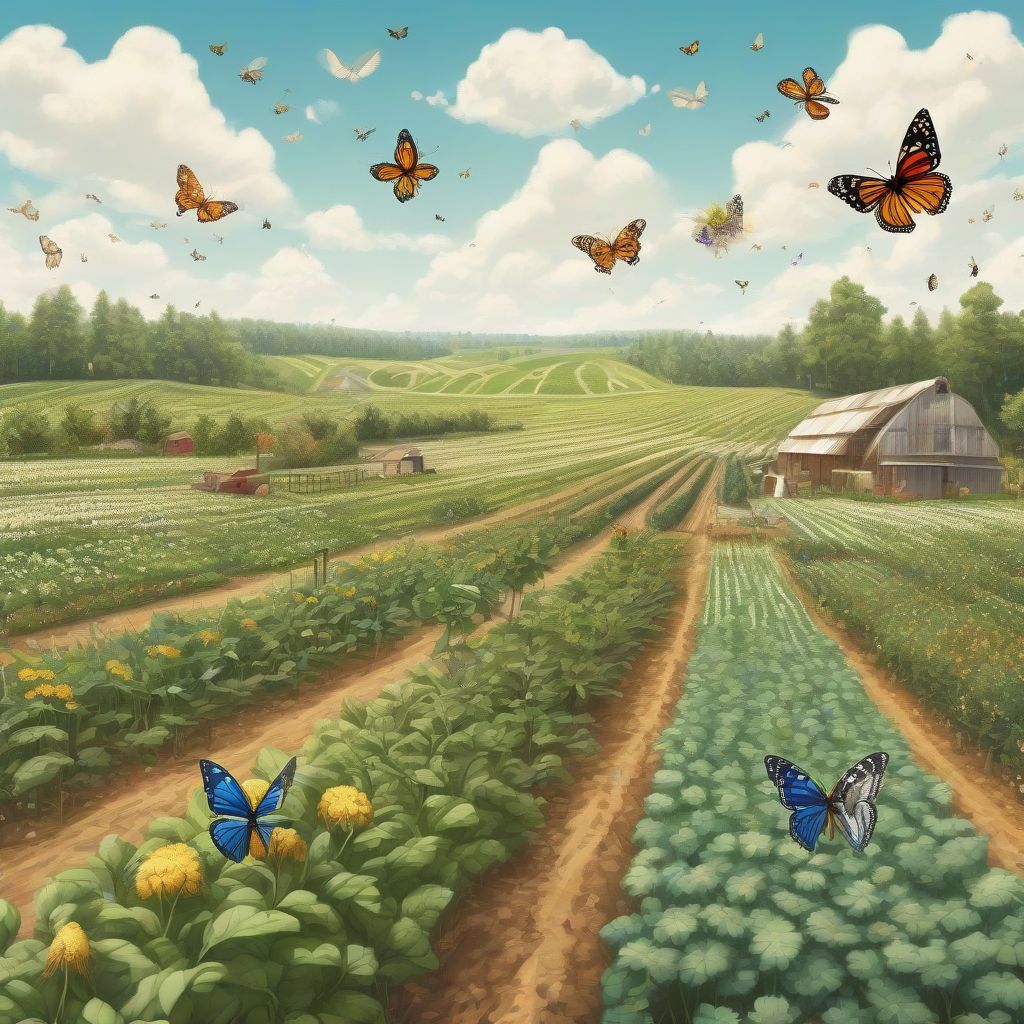Imagine biting into a juicy strawberry, its flavor bursting in your mouth, knowing that it was grown in harmony with nature, without harmful pesticides or chemicals. That’s the promise of organic farming, a system of agriculture that prioritizes environmental sustainability and human health. But does it truly live up to the hype?
As a nutritionist and meal-prep coach, I’m deeply invested in understanding where our food comes from and its impact on our well-being. Organic farming has always intrigued me, and today, we’re diving deep into its vital role in creating a sustainable food system for generations to come.
What Makes Organic Farming Different?
Organic farming is more than just avoiding synthetic pesticides and fertilizers. It’s a holistic approach that views the farm as an interconnected ecosystem. Here’s what sets it apart:
1. Soil Health is Paramount
In organic farming, healthy soil is the foundation of a healthy farm. Instead of relying on chemical fertilizers, organic farmers prioritize building soil fertility through:
- Composting: Decomposing organic matter like crop residues and manure to create nutrient-rich compost.
- Cover Cropping: Planting non-cash crops like legumes and clover to improve soil structure and nitrogen fixation.
- Crop Rotation: Alternating different crops in a planned sequence to interrupt pest cycles and enhance soil fertility.
2. Protecting Our Waterways
Runoff from conventional farms, laden with synthetic fertilizers and pesticides, is a major source of water pollution. Organic farming practices minimize this risk by:
- Reducing Chemical Inputs: Avoiding synthetic fertilizers and pesticides that contaminate water sources.
- Improving Water Infiltration: Healthy soil with good structure absorbs water more effectively, reducing runoff.
3. Biodiversity is Key
Organic farms often resemble diverse ecosystems, teeming with life. This biodiversity is encouraged through practices like:
- Planting Diverse Crops: Avoiding monocultures (large areas of a single crop) that are more susceptible to pests and diseases.
- Providing Habitats for Beneficial Insects: Planting hedgerows, flower strips, and insectaries to attract pollinators and natural pest predators.
 Organic Farm Biodiversity
Organic Farm Biodiversity
The Benefits of Organic Farming for Sustainable Food Production
The practices employed in organic farming contribute significantly to a more sustainable food system:
1. Combating Climate Change
Agriculture is a significant contributor to greenhouse gas emissions. Organic farming can play a role in mitigating climate change by:
- Sequestering Carbon in Soil: Healthy soil acts as a carbon sink, pulling carbon dioxide from the atmosphere.
- Reducing Fossil Fuel Reliance: Organic farming often relies on less energy-intensive practices and avoids synthetic fertilizers, which require significant fossil fuels to produce.
2. Conserving Water Resources
Water scarcity is a growing concern globally. Organic farming’s emphasis on soil health and reduced chemical inputs contributes to water conservation by:
- Improving Water Holding Capacity: Healthy soil acts like a sponge, holding more water and reducing the need for irrigation.
- Minimizing Water Contamination: By avoiding synthetic pesticides and fertilizers, organic farming protects water quality.
3. Protecting Human Health
Concerns about pesticide residues in food and their potential impact on human health are on the rise. Organic farming offers a solution by:
- Prohibiting Synthetic Pesticides: Organic certification prohibits the use of synthetic pesticides, reducing exposure to potentially harmful chemicals.
- Promoting Nutrient Density: Studies have shown that organically grown foods may contain higher levels of certain nutrients, although more research is needed in this area.
Addressing Common Concerns About Organic Farming
1. Is Organic Food More Expensive?
It’s true that organic food often comes with a higher price tag. This is due to several factors, including:
- Higher Labor Costs: Organic farming often requires more labor-intensive practices.
- Smaller Scale Production: Many organic farms operate on a smaller scale, leading to higher production costs.
However, it’s important to consider the hidden costs of conventional agriculture: environmental degradation, health problems associated with pesticide exposure, and the depletion of natural resources.
2. Can Organic Farming Feed the World?
The debate on whether organic farming can produce sufficient yields to feed the growing global population is complex. While organic yields can be lower than conventional yields in some cases, studies have shown that:
- Organic Yields Can Match Conventional Yields: With proper management and technology, organic farming can achieve comparable yields, especially in long-term systems.
- Reducing Food Waste is Crucial: A significant portion of food produced globally is wasted. Addressing food waste is essential for feeding the world, regardless of the farming system.
3. Is Organic Food Really More Nutritious?
The scientific evidence on the nutritional differences between organic and conventionally grown food is mixed. While some studies suggest that organic foods may have higher levels of certain nutrients, more research is needed to draw definitive conclusions.
Embracing a Sustainable Future with Organic Farming
Organic farming isn’t just a trend; it’s a necessary step towards a more sustainable and just food system. By supporting organic farmers, we’re investing in:
- The health of our planet: Protecting our soil, water, and air for generations to come.
- The well-being of our communities: Creating a food system that prioritizes the health of farmers and consumers.
- A tastier and more flavorful future: Enjoying food that’s grown in harmony with nature.
What are your thoughts on the role of organic farming in building a more sustainable food system? Share your perspectives in the comments below!
[amazon bestseller=”organic gardening”]
